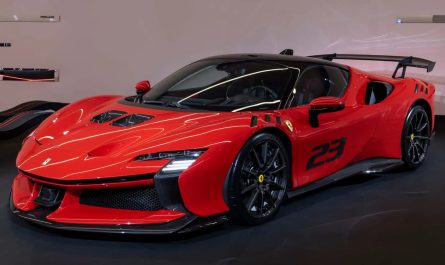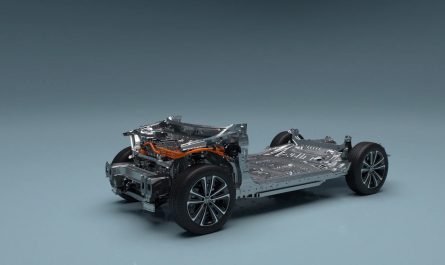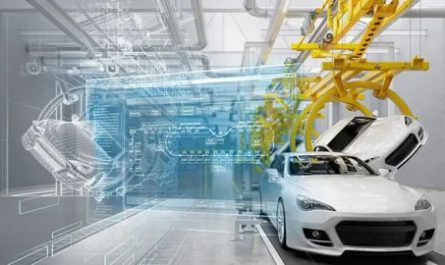Introduction to Electric Vehicles and Market Trends
The electric vehicle (EV) market has witnessed a remarkable transformation over the past decade, evolving from niche offerings to becoming mainstream options for consumers. An increasing demand for sustainable transportation solutions primarily drives this shift towards electrification in the automotive industry. As climate change and air quality concerns escalate, many consumers seek alternatives to traditional internal combustion engine vehicles, and EVs present an attractive solution.
Several factors contribute to this surge in interest and adoption of electric vehicles. Governments worldwide are implementing stringent regulations to reduce carbon emissions and promote environmentally friendly transportation. Incentives such as tax rebates, grants, and reduced registration fees further encourage consumers to consider EVs. Additionally, urban areas are increasingly adopting measures to restrict or eliminate fossil fuel vehicles, paving the way for electric alternatives.
Advancements in battery technology have played a significant role in making electric vehicles more appealing. The development of higher energy-density batteries has improved driving ranges and reduced charging times, alleviating some initial concerns associated with EV ownership. Moreover, the decreasing battery production costs are making electric vehicles more affordable, broadening their market reach.
This evolving landscape has paved the way for established auto manufacturers and emerging startups to invest heavily in electric mobility solutions. The focus on research and development in this sector is evident, as companies aim to enhance electric vehicles’ performance, range, and overall consumer experience. With these market trends in mind, we will explore the top five automakers leading the charge in EV production, showcasing their innovative approaches and contributions to the industry.
Automaker #1: Tesla
Tesla has emerged as a pioneering force in the electric vehicle (EV) industry, leading the charge with innovative technology and impressive production capabilities. Founded in 2003, the company quickly cemented itself as a leader in the EV market, renowned for its advancements in battery technology. Tesla’s lithium-ion battery packs, designed for high energy density and long lifespan, have set a benchmark for competitors, enabling longer ranges and shorter charging times.
The company’s production capacity has grown exponentially, as highlighted by its gigafactories, strategically located across the globe to meet increasing demand. The Gigafactory in Nevada, for instance, is crucial for Tesla’s battery production, facilitating the assembly of battery packs and ensuring that the company can scale its operations efficiently. This dedication to sustainable production processes underlines Tesla’s commitment to environmental stewardship.
Tesla’s flagship models, including the Model S, Model 3, Model X, and Model Y, showcase the company’s cutting-edge engineering and design. The Model S has been widely acclaimed for its performance, offering rapid acceleration and an impressive electric range. At the same time, the Model 3 has gained significant popularity due to its affordability and functionality. The introduction of the Model X, with its unique falcon-wing doors, and the Model Y, a compact SUV, cater to diverse consumer preferences, solidifying Tesla’s footprint in various market segments.
Looking ahead, Tesla has ambitious plans that include the highly anticipated Cybertruck, which promises a radical design and versatile functionality. Additionally, the expansion of its MegaFactory aims to significantly increase production capacity, positioning Tesla as a formidable player in the future of self-sustaining energy and transportation. Tesla’s influential role in the industry extends beyond its vehicles; it continuously pushes for greater emphasis on sustainability and renewable energy, inspiring other automakers to innovate and adopt electric technologies in their offerings.
Automaker #2: Volkswagen Group
The Volkswagen Group has rapidly positioned itself as a critical electric vehicle (EV) player, demonstrating a robust commitment to electric mobility. Recognizing the urgency for sustainable transportation, the group has set forth an ambitious plan to introduce numerous electric models across its diverse portfolio, encompassing brands such as Volkswagen, Audi, and Porsche. This strategic shift reflects a definitive move towards decarbonization while catering to evolving consumer demands.
A cornerstone of Volkswagen Group’s strategy is launching its innovative ID—family of electric vehicles, with the ID.4 leading the charge. The ID.4, an all-electric SUV, showcases the company’s dedication to blending cutting-edge technology with practicality, appealing to many consumers. With its impressive range, spacious interior, and advanced features, the ID.4 exemplifies how Volkswagen is redefining modern mobility through electrification.
Beyond vehicle production, Volkswagen Group is concentrating on creating a comprehensive EV ecosystem. This includes a substantial investment in charging infrastructure to alleviate range anxiety among potential EV owners. By enhancing the availability of charging stations, the company aims to make electric mobility as convenient as traditional fuels. Furthermore, the group is advancing battery technology to improve efficiency and reduce costs, thus enhancing the attractiveness of EVs.
In addition to developing new models and expanding infrastructure, Volkswagen Group is committed to sustainability throughout its supply chain. This holistic approach reinforces its position in the market as a leader in the transition to electric mobility. As Volkswagen continues to innovate and invest in EV technology, it is poised to play a significant role in shaping the future of the automotive industry, solidifying its standing among the top automakers dedicated to electric vehicle production.
Automaker #3: General Motors
General Motors (GM) is making significant strides in the transition towards an all-electric future, reflecting its commitment to sustainability and innovation. The automaker has set an ambitious goal of achieving an all-electric lineup by 2035. This strategy symbolizes a shift in their production model and corresponds with a more significant movement in the automotive industry towards electrification.
One of GM’s flagship electric vehicles (EV) is the Chevrolet Bolt, which has gained recognition for its affordability and practicality, making it an attractive option for consumers transitioning to electric driving. Additionally, the much-anticipated GMC Hummer EV represents a bold reimagining of the iconic Hummer brand. This model demonstrates GM’s capabilities in delivering high-performance electric vehicles while incorporating advanced technologies such as a multi-propulsion system and rapid charging features.

To further enhance the electric vehicle ecosystem, General Motors has established partnerships aimed at improving charging infrastructure. These collaborations will ensure consumers have ready access to EV charging stations, alleviating concerns regarding range anxiety. GM’s commitment to accessibility and convenience will facilitate the adoption of electric vehicles across diverse consumer segments.
An essential component of GM’s strategy lies in advancements in battery technology. The company is investing heavily in research and development to produce batteries that are not only more efficient but also more sustainable. Innovations such as Ultium battery technology promise improved energy density and increased flexibility in vehicle design, catering to a wide range of consumer preferences.
In summary, General Motors is implementing a multifaceted approach to secure its position as a leader in the electric vehicle market. GM is paving the way for a cleaner and more sustainable automotive future through strategic planning, notable model offerings, and technological partnerships.
Top 5 Automakers Leading the Charge in EV Production
Conclusion: The Future of EV Production
As we explore the landscape of electric vehicle (EV) production, it becomes increasingly clear that the automakers leading this charge are redefining the automotive industry and the broader environmental impact. Companies committed to advancing electric vehicle technology are pioneering innovations that promise to enhance efficiency, reduce emissions, and create a more sustainable future. The collective efforts of these industry leaders signal a paradigm shift, drawing attention to the urgent need for sustainable transportation solutions.
Looking ahead, the future of EV production is poised for remarkable developments. The automotive sector anticipates significant advancements in battery technology, which could drastically improve the range and affordability of electric vehicles. With ongoing research and development, we may see the emergence of solid-state batteries that promise shorter charging times and greater energy density. These innovations will likely encourage a broader consumer adoption of electric vehicles, making them an attractive option for various buyers.
Moreover, as traditional automakers enhance their EV offerings, new entrants in the market are also expected to make an impact. Startups focused on electric mobility are emerging with fresh ideas and innovative designs, while existing companies may pivot their business models to focus more heavily on electric options. This diversification will foster healthy competition, potentially leading to improved technologies and lower consumer prices.
As the landscape of electric vehicles evolves, consumers can expect a more comprehensive array of choices, including more affordable and versatile options. Additionally, as charging infrastructure continues to expand and improve, the convenience of owning an electric vehicle will strengthen its appeal. In summary, the leaders in electric vehicle production are steering the industry toward a transformative future with significant benefits for both the environment and consumer choice.



